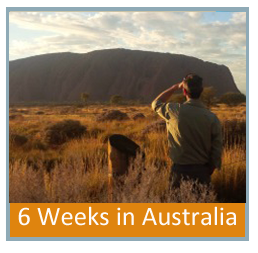He was practically sputtering, he was so frustrated. I looked at his tear-filled eyes with confusion. With stupid, naive confusion. He wasn’t talking to me, and I didn’t know him. We were a group of strangers exiting the warm, transcending world of the theatre before departing on our own separate ways.
But I heard him. And I thought he was wrong. That he was transposing his own experience as a young gay man in the 1980s to that of today’s teenagers. That today’s youth have it so much better. That the world is so much more aware, more accepting, and less closeted.
After all, when I grew up in the 1980s, you’d be forgiven for thinking that there was not a single gay person in the entire high school. (Which, of course there were. These young people were not just in the closet, they were forced there and kept behind doors with lock and key.) Whereas when my younger siblings were in high school a decade later, there were openly gay students and an LGBT group that regularly met at school.
And the theatre piece we’d just seen, the Tony-award winning play The Normal Heart, was about a time even before mine. It told of a tight-knit group of friends working to refuse to let doctors, politicians and the press bury the truth of the then unspoken AIDS epidemic, more than a quarter of a century ago.
This man was speaking to his friend, an older woman, and he was seething. He said, “Things haven’t changed. After all this, after everything we’ve been through, things still haven’t changed.”
I hadn’t really thought about this man since I saw that performance, many months ago. But today, I have. And I’ve been thinking that he’s right.
How else can we explain the death of Jamie Hubley, a 15-year-old Canadian boy who lived in my city, and who committed suicide after public taunting at school for being gay and unsuccessful treatment for depression? It seems that “difference” is still not considered “normal.”
Of course, even in my school days, difference was taunted. Whether it was the colour of your skin, the way you talked, the freckles on your face, or the clothes you wore, if you were different, you could get eaten alive at school. Conformity was everywhere. It protected you, kept you under the radar. I blended in. I got along okay. But I remember the others who didn’t. It wasn’t pretty. Like Rick Mercer says in this video, school was a prison for these kids.
But why are children in groups so vicious? And what makes us this way? It seems that bullying has existed in school since the beginning of time. Literature from all time periods notes this kind of behaviour among children.
How can we consider ourselves evolved as a species when our young people are tearing each other apart like animals? Think I’m exaggerating? Jamie Hubley had batteries stuffed down his throat by a gang of fellow students who didn’t like his choice to figure skate rather than play hockey. How does this make any sense? What does it matter to them what type of skating he wants to do.
I know what you’re thinking. You’re thinking that I’m raising more questions than answers. When am I going to wrap this up with a nice closing and some calls for action that will make a difference?
But I can’t. I’m now that man outside the theatre, seething with frustration, with tears in my eyes. How can we make sure that there are no more families like the Hubleys, left only with questions rather than their much-loved child.
There’s no such things as normal hearts. Just hearts. And they all hurt just the same when they’re clawed at.
















Speak Your Mind